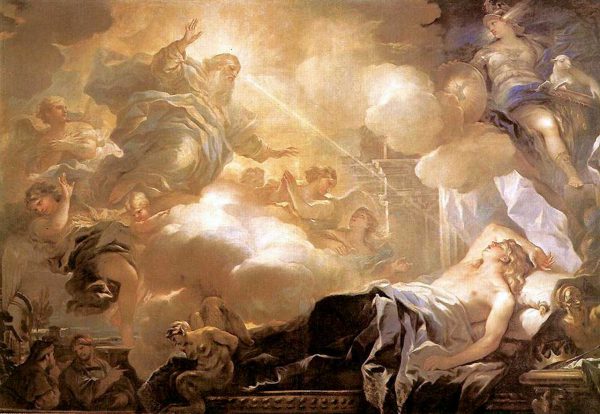
.............................................................................................................................
Bibles For Israel
“The
Lord loved him.” (2 Samuel 12:24)
King Solomon (pronounced
Shlomo in Hebrew) had more wisdom than any other leader of his time, perhaps
even in our time. Yet, his wisdom was not enough to ensure his success.
What can we learn from
Solomon’s accomplishments and personal weaknesses that will help us to be
prosperous and successful in our lifetime?
Solomon was David and
Bathsheba’s second son (2 Samuel 12:24) and Israel’s third
king. He reigned forty years from 971–931 BC.
The
name Solomon, Shlomo שְׁלֹמֹה in Hebrew, comes from the word shalom שָׁלוֹם, which means peace, completeness and wholeness. This is reflected in the fact that Solomon’s kingdom
enjoyed great peace and expansion under his reign (1 Kings 4:24).
The Bible mentions that God
loved Solomon in particular and therefore gave him a special name —Yedidiah or Yedid-Yah
(יְדִידְיָהּ), which
means Beloved of YHVH (2 Samuel
12:25).
Yedeed in
modern Hebrew, is the word for friend.
And Yedidiah is a popular boy’s name
in Israel today, meaning Friend of God.
How
beautiful it is that God wanted Solomon to always know how much his Creator
loved him. So much so that God even declared: “I will
be his father, and he will be My son” (2 Samuel 7:14).
Solomon Becomes Wise
According to Jewish tradition, Solomon is one of 48 male
prophets in the Tanakh (Old Testament). To be considered a prophet in
Jewish thinking, one must have personally encountered God, which Solomon did —
twice.
God appeared to Solomon the first time when he had been offering
sacrifices and burned incense in the high places at Gibeon, though no one was
to make sacrifices there (1
Kings 3:3).
Nevertheless, it is here in the
midst of doing a very foolish act of worship that God appeared to Solomon in a
dream and asked what He can do for him.
Instead of being selfish
and asking for wealth or long life, Solomon wanted to be a good king for the
Jewish people, so he asked God for “an
understanding heart to judge the people and discern between good and evil” (1
Kings 3:9).
God granted Solomon’s request and said, “I have given you a wise
and discerning heart, so that there has been no one like you before, nor will
there be one like you afterwards” (verse 12).
Now
imbued with Divine understanding, Solomon returned to Jerusalem and did the
wise thing — he “stood before the ark of the covenant of the Lord, and offered
burnt offerings and peace offerings” (verse
15).
When we find ourselves doing
foolish things, we can ask God for wisdom to help us do the right thing. But,
as we shall see, even having abundant wisdom does not shield us against
self-destruction.
Solomon’s Accomplishments
During his reign as
king, Solomon received God’s great wisdom to accomplish some impressive things:
He built the house of
the Lord — the First Temple in Jerusalem where God’s presence resided (1 Kings
5–6).
“He produced manuals on botany,
describing every kind of plant, from the cedars of Lebanon to the hyssop that
grows on walls. He
also produced manuals on biology, describing animals, birds,
insects, and fish. People from all nations came to hear Solomon’s display
of wisdom” (1 Kings 4:33–34).
Solomon wrote great
wisdom recorded in the Books of Proverbs and Ecclesiastes and
more than 1,000
songs. Only two of them, however, were included in the Book of
Psalms — Psalms 72 and 127.
The
Song of Songs (also known as Song of Solomon) is often
attributed to him. It is a poetic love story so beautiful that many a bride
choose passages from it to be read on her wedding day.
Solomon surrounded
himself with good men as governors and advisors (1 Kings 4:1–19).
He righteously resolved
disputes in ways that surpassed other judges and leaders.
We see
this when two women came to Solomon, both claiming to be the mother of a baby boy.
He gave the order: “Cut the living child in two and give half
to one and half to the other.”
The
woman who falsely claimed to be the mother eagerly desired to see this order
carried out. However, the real mother cried out, “Don’t
kill him!” (1 Kings 3:16–28).
Solomon gained influence
with world leaders through the wisdom and riches that God gave to him.
“When
the queen of Sheba saw all the wisdom of Solomon, the palace he had built, the
food at his table, the seating of his servants, the service and attire of his
attendants and cupbearers, and the burnt offerings he presented at the house of
the LORD, it took her breath away” (1 Kings 10:4–5).
As a
result of all of this impressive governance, “during
Solomon’s lifetime Judah and Israel, from Dan to Beersheba, lived in safety,
everyone under their own vine and under their own fig tree” (1 Kings 4:25).
Yet, as Solomon discovered,
abundant wisdom and
wealth were not enough to keep his kingdom under God’s
protection.
He also needed abundant humility
and self-discipline to follow the rules that God ordained
for all kings of Israel to follow.
Solomon Breaks God’s Rules
After Solomon dedicated the
Temple, the Lord appeared to him a second time and said,
“As
for you, if you walk before Me faithfully with integrity of heart and
uprightness, as David your father did, and do all I command and observe My
decrees and laws, I will establish your royal throne over Israel
forever, as I promised David your father when I said, ‘You shall never fail to have a successor on
the throne of Israel’” (1 Kings
9:4–5).
We know what these commands are
because Deuteronomy chapter 17 lists several rules specifically for all future
kings of Israel.
Here are a few of God’s rules
that Solomon had trouble following:
The
king “must not acquire great numbers of horses for himself or make the people return to Egypt to get more
of them, for the Lord has told you, for you are not to go back that way again’”
(verse 17).
Nevertheless, “Solomon’s horses were imported from Egypt” (1 Kings 10:28).
And he had a lot of them, which he kept in store cities that he
built (1 Kings 9:19).
The
king “must not accumulate large amounts of silver and gold.”
As we read above, Solomon
amassed such great amounts of wealth that even the Queen of Sheba was
astonished.
The
problem with amassing so much wealth is that over time, God warned, “You
may say to yourself, ‘My
power and the strength of my hands have produced this wealth for me.’ But
remember the Lord your God, for it is He who gives you the ability to produce
wealth, and so confirms His covenant, which He swore to your ancestors, as it
is today” (Deuteronomy 8:17–18).
It
takes incredible humility to remain faithful to God while having access to vast
supplies of anything you could ever want. After all, “pride
goes before destruction, a haughty spirit before a fall,” wrote
Solomon in Proverbs 16:18.
The Bible doesn’t say that
Solomon had issues with pride, but he does show a pattern of violating God’s
rules. He may have thought he was getting away with breaking them,
until he disobeyed one of God’s most important rules:
The
king “must not take many wives, or his heart will be led astray.”
Solomon Self-Destructs
With all his wisdom and wealth,
Solomon had one dangerous and very common weakness — women! And in this case
foreign women who worshipped other gods.
He married the Egyptian
Pharaoh’s daughter but also women who were Moabites, Ammonites, Edomites,
Sidonites, and Hittites (1 Kings
11:1).
Many of the women he
married were royalty, daughters of foreign kings, which was an ancient form of
keeping peace with neighboring nations, since the leaders were all family.
But Solomon had 700 wives and
300 concubines in total!
He did
this even though God explicitly told him, “You
must not intermarry with them, for surely they will turn your hearts after
their gods” (1 Kings 11:2).
And
that is what happened. The man whom God called His son and His beloved “built
a high place for Chemosh the abomination of Moab and for Molech the abomination
of the Ammonites. He did the same for all his foreign wives, who burned
incense and offered sacrifices to their gods” (1 Kings 11:7–8).
Imagine that.
“So the Lord said to Solomon, ‘Since this is your attitude and
you have not kept My covenant and My decrees, which I commanded you, I
will most certainly tear the kingdom away from you and give it to one of your subordinates’” (1 Kings 11:10–11).
Very
soon, neighboring leaders started to become hostile toward Solomon (1 Kings 11:14–25).
Moreover, after Solomon’s
death, God divided the nation of Israel into two kingdoms: Israel to the
north and Judah to the south (1 Kings
11:13, 29–39).
Only the kingdom of Judah
remained under the reign of King David’s descendants.
We do not have any record of
Solomon repenting of his disobedience or seeking after God and Ruach Hakodesh
(the Holy Spirit) as his father David so earnestly did in Psalm 51.
Yet, we can glean from
Solomon’s writings in the Book of Ecclesiastes that he learned a valuable
lesson.
After
using the riches God gave him to buy an excess of everything he wanted, Solomon
said that “everything was meaningless, a chasing after the wind; nothing
was gained under the sun” (Ecclesiastes
2:10–11).
And so,
at the very end of this somber book, he leaves us with the same exhortation
that God had been saying to Solomon and all people throughout Scripture:
“Here
is the conclusion of the matter: Fear
God and keep His commandments, for this is the duty of all mankind. For
God will bring every deed into judgment, including every hidden thing,
whether it is good or evil” (Ecclesiastes
12:13–14).
May we not only understand this
wisdom but also pray to develop the self-discipline and humility to live it
out.
Something Greater Than Solomon
Is Here
God
said of Solomon, “I will be his father, and he will be My son” (1 Chronicles 28:6; 2 Samuel 7:14), but Solomon did not uphold the standards of
being a true son of the God of Israel, for Solomon loved other gods (1 Kings 11:4).
Nearly 1,000 years later, God
sent His only begotten Son, Yeshua who was with God from the beginning!
Our Messiah Yeshua showed us
how to be true children of God, being the example of always doing what the
Father told him to do and say.
Though
God named Solomon Yedidiah “Beloved
of God (YHVH),” He never mentions again in Scripture how beloved Solomon
is to Him.
On the other hand, twice, the
Father bellows from heaven for all to hear:
“This
is My son whom I love; with Him I am well pleased” (Matthew 3:17).
Also, “listen
to Him” (Matthew 17:5).
And
Yeshua said, “The Queen of the South will rise at the judgment with this
generation and condemn it; for she
came from the ends of the earth to listen to Solomon’s wisdom, and now
something greater than Solomon is here” (Matthew 12:42; also Luke 11:31).
Yeshua
is the perfect Son of God who offers us perfect wisdom and eternal peace,
something no earthly king ever can.
Located
in the Holy Land, the Bibles For Israel ministry is producing the first-ever
Messianic Prophecy Bible.
We
educate Jewish people on the prophecies about the Messiah in the Tanakh (Hebrew
Scriptures), showing the truths by defining the Messianic and rabbinical points
of view.
Not
only are we creating the free Messianic Prophecy Bible in print form, we are
tirelessly working on the creation of free Bible software for mobile and
computer devices.
This
free software will be used by everyone – from seminary students to Sunday
school children in African villages, and those who are scattered around
the four corners of the earth.
Our
Bible will reach millions of people in hundreds of languages, spanning all 257
countries and territories in the world.
We also
minister to the spiritual and financial needs of the elderly, poor, and single
parents.
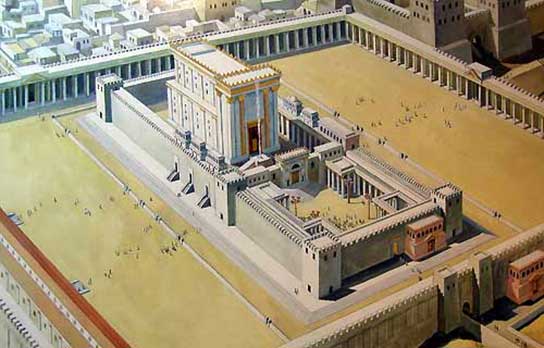
 |
The
Visit of the Queen of Sheba to King Solomon
|
 |
The Anointing of Solomon (1 Kings 1:39)
|
 |
Ancient
Gibeon was a former Canaanite city located just northwest of Jerusalem at the
southern edge of the modern Palestinian village, al Jib. Gibeon is
where Solomon made sacrifices to God before he built the first Temple in
Jerusalem.
|
 |
Dream
of Solomon,
|
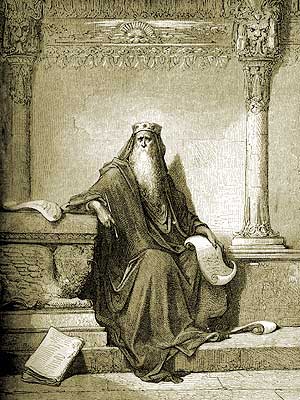 |
King
Solomon Writing Proverbs
|
 |
Artistic
rendition of the First Temple built by King Solomon as God directed him to
do.
|
 |
Jewish
mother holds her child in Jerusalem.
|
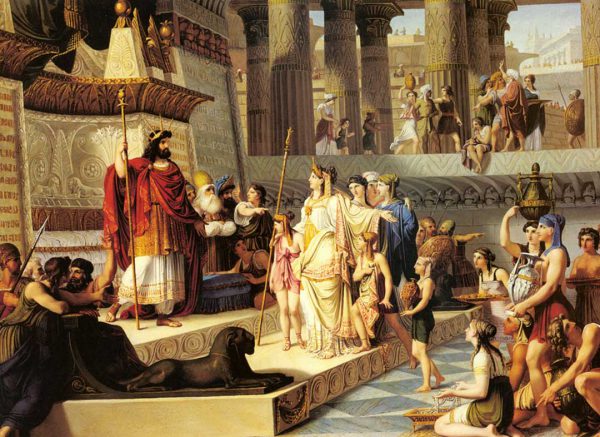 |
| Solomon and the Queen of Sheba, |
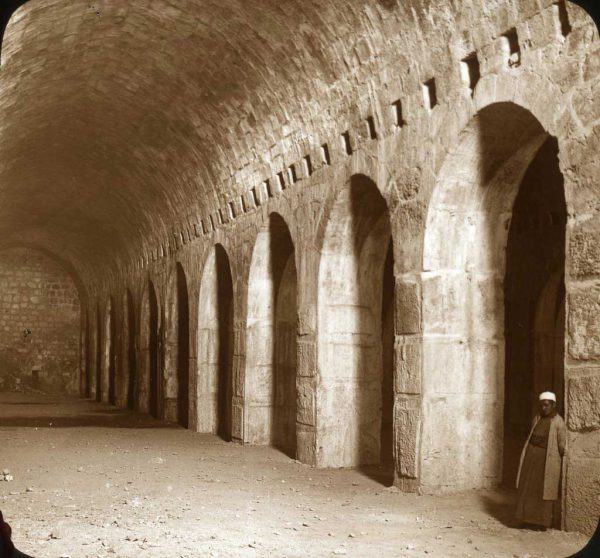 |
“Solomon’s
Stables” is a storage
vault built in the 2nd Temple period. It was named by the
Crusaders who used the area as stables for their calvary. It is
located under the Temple Mount platform and used as a Muslim prayer hall
today.
|
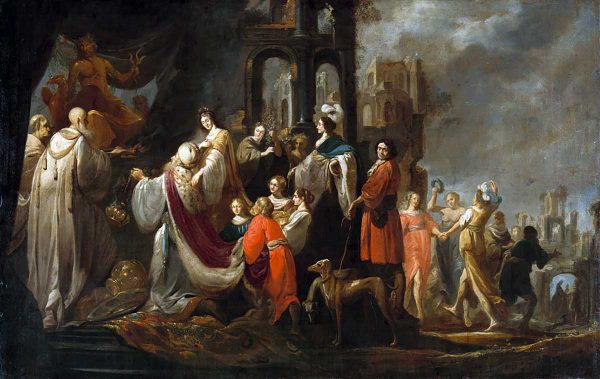 |
Idolatry
of King Solomon
|
 |
Solomon
Making a Sacrifice to the idols
|
 |
Map of
the split kingdom: Judah to the south and Israel to the north.
|
 |
While
Solomon’s name means Peaceable, God gave Yeshua the title of Sar Shalom (Prince of
Peace) because
through Him, we have eternal peace.
|
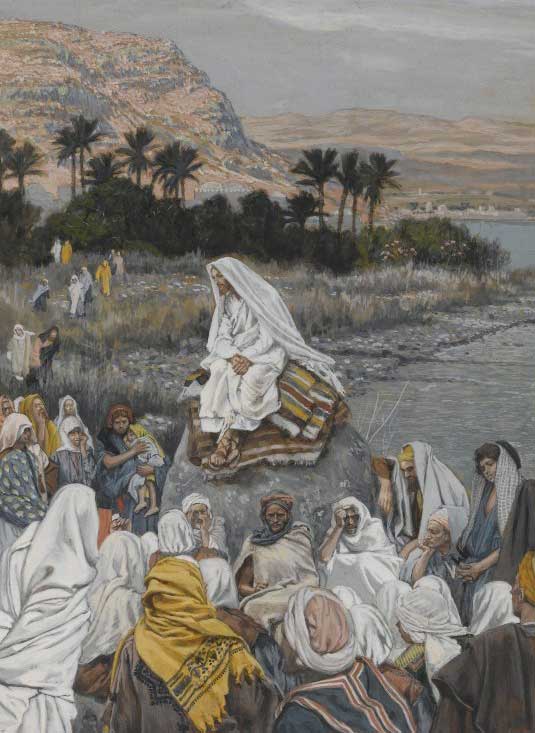 |
Jesus
Preaches by the Sea
|
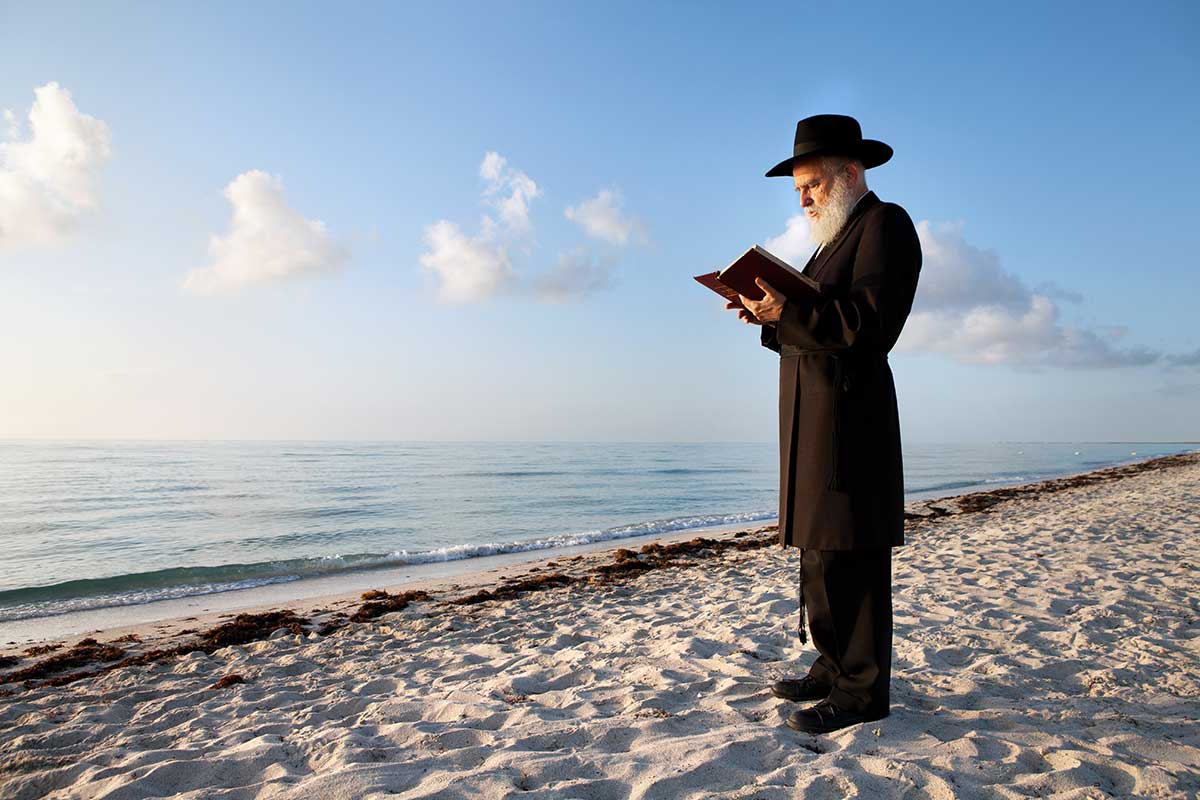 |
Yeshua
is the perfect Son of God who offers us perfect wisdom and eternal peace,
something no earthly king ever can.
|
No comments:
Post a Comment